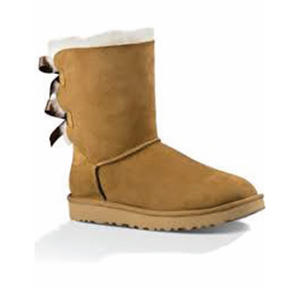
On February 18, Rabbi Yair Hoffman of the Five Towns Jewish Times reported that several pairs of shoes manufactured by the American company Dexter UGG, formerly known as UGG Australia, had been found to contain shatnez, a biblically prohibited mixture of wool and linen. The issue creating the initial concern was a pair of slip-on sneakers that were found to have linen fibers in the canvas upper, with wool stitched securely into the heel. The same style of shoe with vinyl or leather uppers do not carry a shatnez concern.
Soon after, primarily women (though UGG makes footwear for men and children as well) who consider their classic UGG sheepskin and wool boots, slippers and sneakers key footwear for their winter wardrobes, contacted their rabbis with shatnez questions. Online community chats were filled with questions about UGGs, with both true and false information making the rounds. Many individuals reported setting aside their UGG boots until they got a definitive answer regarding the shatnez status of their particular pair.
Hoffman reported that the Lakewood Shatnez Laboratory has been finding linen and wool blends in UGG shoes certainly since 2017. They reported that some shoes can be made shatnez-free, while others have more complex stitching and cannot be rendered shatnez-free. Shatnez laboratories in Montreal and Gateshead (England) also found UGG products containing shatnez, including in some items mistakenly labeled as containing wool and nylon, when the nylon actually comprised a linen-cotton blend.
Rabbi Marc Spivak, who checks shatnez for the West Orange/Livingston community, shared that one can wear most UGGs except the seven publicized styles found to have shatnez, which were published as part of an update to the original Hoffman article. They are 1) Blue canvas/linen sneakers that have wool in the inner heel of the shoe, 2) Black ladies’ slipper with a band across the lip of the slipper and two metal fasteners on each end and prominent white stitching connecting the slipper to the sole, 3) Pink-red ladies’ canvas shoe with a ropelike lace at the front (no eyelets), 4) white woolen boots, suede on the outside, fleece on the inside, manufactured in Australia, 5) striped 18 gray stripes and 18 white stripes woolen slipper, 6) pink Australian-made ladies’ shoe-sneaker labeled 85 percent wool and 15 percent nylon, and 7) black moccasin with wool fleece lining.
Providing feedback on the experience that UGGs presented for shatnez, Rabbi Spivak shared his perspective. “I have heard from many shatnez testers all over, and they are reporting that they have checked lots of pairs of UGGs today without finding shatnez in them.” Rabbi Spivak, noting that he had been bombarded by this question since it [the article] first came out, said, “For those of you interested, a question that came out of all of this is whether shatnez at all applies to cleaned/bleached but unprocessed wool still attached to the skin. I heard Rav Belsky said it does not. I asked this question to others and I am waiting to hear what they think.”
Rabbi Yaakov Neuburger of Bergenfield shared that he was also beset with questions. “Many of you have asked me about recent shatnez findings in Decker Ugg footwear. The laws of shatnez are complex, especially regarding the varied forms of shoes. I am learning that the UGG product line, the styles and their composition, is almost as complex.
“At present, you need only be concerned with the [preceding] seven items. Only these need to be checked before continuing to wear them,” said Rabbi Neuburger.
Rabbi Neuburger expressed appreciation for the interest that the shatnez issue in UGG boots created. “The concern that this has generated is a testament to the commitment we have to carry out Hashem’s will with great reverence and with ahavas shamayim (love of heaven) in similar measure.”
By Elizabeth Kratz









